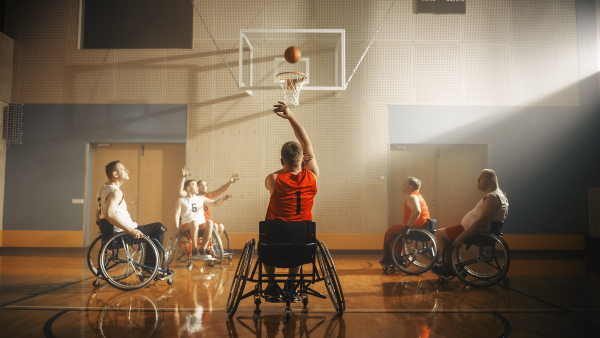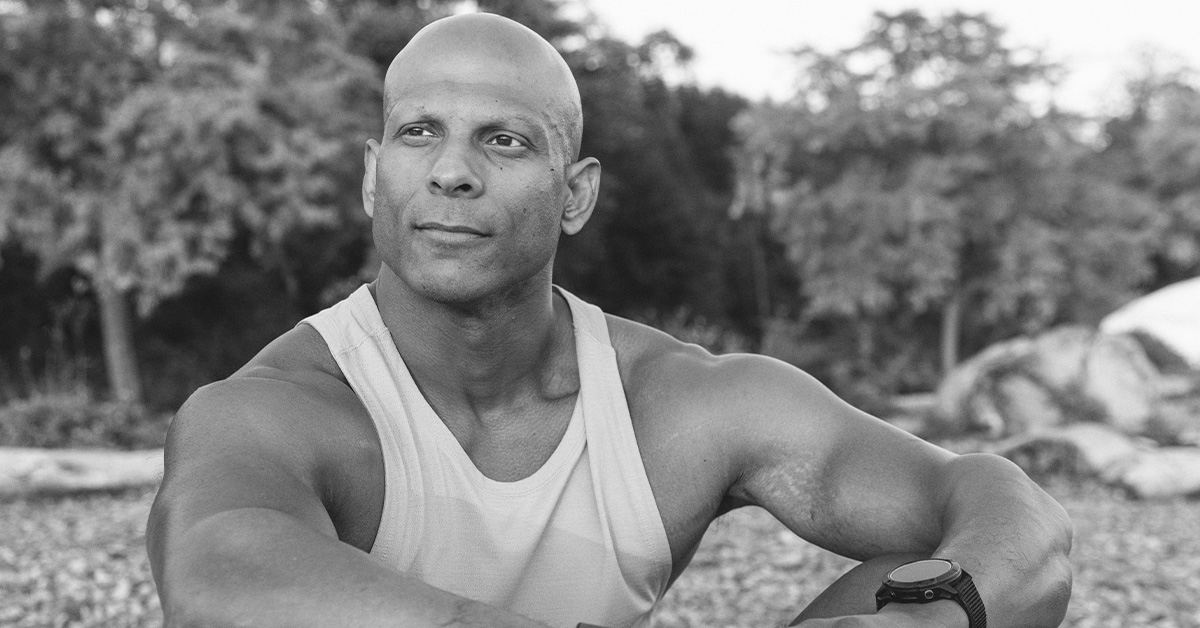Editor’s note: This article was originally published in 2024 and was lightly updated to add new research.
Humans are naturally social beings, biologically wired to connect with others. From a young age, these connections shape who we are and how we see ourselves. People who grow up surrounded by encouragement, empathy, and patience tend to show themselves the same kindness as adults. Those who don’t often find it harder to connect, and may be more critical or impatient with themselves later in life.
Social connection remains essential throughout life. Still, the people who need it most are often the ones who find it hardest to reach out.
Men, in particular, tend to have fewer social connections than women. Cultural expectations — like being independent, stoic, or self-sufficient — can make asking for help feel uncomfortable. Yet isolation takes a toll.
Research from an 85-year Harvard study shows that strong relationships are the single biggest predictor of happiness and long-term health, even more than wealth or career success. And according to the Canadian Men’s Health Foundation, half of Canadian men are at risk of social isolation.
Most of us naturally participated in group activities as we grew up, but not everyone carries it into adulthood. A drop-in hockey night, a spin class, or a walk with a friend can be a good way to reconnect and build community.
Why connection helps your body and mind
People with strong social ties have lower rates of anxiety and depression, better immune function, and even longer lives. Being around others can help regulate your nervous system, boost motivation, and make it easier to build and maintain healthy routines.
For men, these benefits can be especially important. When life gets stressful or isolating, connecting through shared activities can offer a sense of belonging without pressure or expectation.
Signs you might need more social connection
Take a moment to reflect on whether your need for social connection is being met. Sometimes it’s not about how many people you know, but how connected you feel to them.
Ask yourself:
- Do I feel lonely or disconnected?
- Do I spend most of my time alone?
- Do I communicate with people outside of work?
- Do I leave my house often?
- Am I involved in the community?
- Am I irritable?
- Do I get easily frustrated?
- Am I frequently argumentative?
- Am I feeling anxious, stressed, or depressed?
If several of these questions feel familiar, it may be a sign that you need more social connection. That doesn’t mean something is wrong with you; it means you’re human.
If you’re struggling with depression or anxiety, having a social support system can help. Talking with others, even casually, can help regulate emotions, reduce stress, and remind you that you’re not alone in what you’re feeling. Connection doesn’t have to mean deep conversations or big commitments. Sometimes it starts with something as simple as showing up.
The benefits of moving with others
Joining a group activity isn’t just about getting fit. It’s about feeling connected, supported, and seen —things that matter as much as physical health.
As a clinical counsellor, I work with many men who experience loneliness and find it difficult to seek new social connections. Group activities are a great way to expand your social circle and positively impact your mental health.
Here are a few ways group movement can make a difference:
It lifts your mood
Moving with others releases endorphins (your body’s natural pain and stress relievers), and social interaction releases dopamine (associated with motivation and your brain’s reward system). Together, they create a powerful combination that helps relieve stress, anxiety, and low mood.
It builds accountability
When you join a team, you’re not only showing up for yourself, you’re showing up for others. That sense of mutual encouragement can make it easier to stay consistent, especially on the days you don’t feel like going.
It increases confidence
Trying something new, learning a skill, or seeing small progress builds confidence over time. And when you’re surrounded by people doing the same, it reminds you that growth is a process, not a competition.
It creates belonging
Something as simple as sharing a laugh, helping a teammate, or recognizing a familiar face can build a sense of belonging. Over time, these small moments of connection become part of a larger support system.
It strengthens communication and empathy
Teamwork requires cooperation, patience, and encouragement. These skills naturally transfer into everyday life when it comes to how you listen, respond, and support the people around you.
Don’t let shame or embarrassment stop you

Even when you know something could help, taking that first step can be hard. Shame is one of the biggest barriers I see when men try to join a new group or activity.
For some, negative experiences with sports growing up still linger. Maybe there was too much pressure to perform, or you were made to feel like you didn’t belong. Those memories can stay with us and make it harder to try again as adults.
Others have told me they avoid group activities because they’re worried about being judged for not being “in shape,” for not knowing what to do, or for being the new person. Time and confidence are common obstacles, too. When your schedule is packed or your energy is low, it can feel easier to stay home.
These are all normal reactions. Change takes courage, especially when it means stepping into a space where you feel uncertain. The good news is that most people walking through that door feel the same way.
Remind yourself that joining a class, a league, or a community group isn’t about proving anything. It’s about giving yourself permission to connect and try something you might like.
How to find the right group activity for you
Finding a group that feels right can take a bit of trial and error. What matters most is choosing something that fits your personality, goals, and comfort level.
1. Think about your goals
Start by asking yourself what you want to get out of it. Do you want to learn a new skill? Meet new people? Stay active? Or have fun?
Your goals don’t have to be complicated. “I want to feel better” or “I want to get out of the house more” are perfectly good reasons to start.
When your reason feels meaningful, you’re more likely to stick with it.
2. Start small
If the idea of joining a team or class feels overwhelming, begin with something simple.
Go for a walk in a busy park, try an online class, or join a drop-in activity where you can come and go without commitment.
Once that feels comfortable, build from there — maybe a weekly class, a rec league, or a hiking group. Small steps add up.
3. Bring a friend
If you can, invite someone you trust to join you. Having a familiar face beside you helps make the experience feel less intimidating.
If no one can join, that’s okay too. Going solo can make meeting new people easier, since you’ll be forced out of your comfort zone sooner.
4. Find a group that fits you
Not every environment will feel right, and that’s okay. Look for a group that reflects your values and comfort level.
That could be a local rec centre class, a queer sports league, a men’s running group, or a walking club at work. When you find a space where you feel safe and accepted, connection happens more naturally.
5. Let go of perfectionism
You don’t need to be good at something to belong. Nobody expects you to be the fastest, strongest, or most experienced person in the room.
Motivation goes both ways
When you join a new group or activity, it’s easy to focus on how uncomfortable you feel and wonder if you’ll fit in, if you’re good enough, or if people will notice that you’re new.
But what we often forget is that everyone else is probably wondering the same thing.
Your decision to show up might make it easier for someone else to do the same. There’s almost always another person standing in that same doorway, debating whether to walk in. Seeing you take that step can be the encouragement they need.
That sense of shared accountability and mutual support is what builds real community, not just exercise partners, but people who look out for one another. When you move with others, you’re doing more than working out. You’re helping create a space where everyone feels a little more connected, capable, and strong.
What are some classes or groups you’ve been thinking about trying out? Share in the comments below!






Let’s Talk!
Did you enjoy this article? Let us know in the comments.
0 Comments